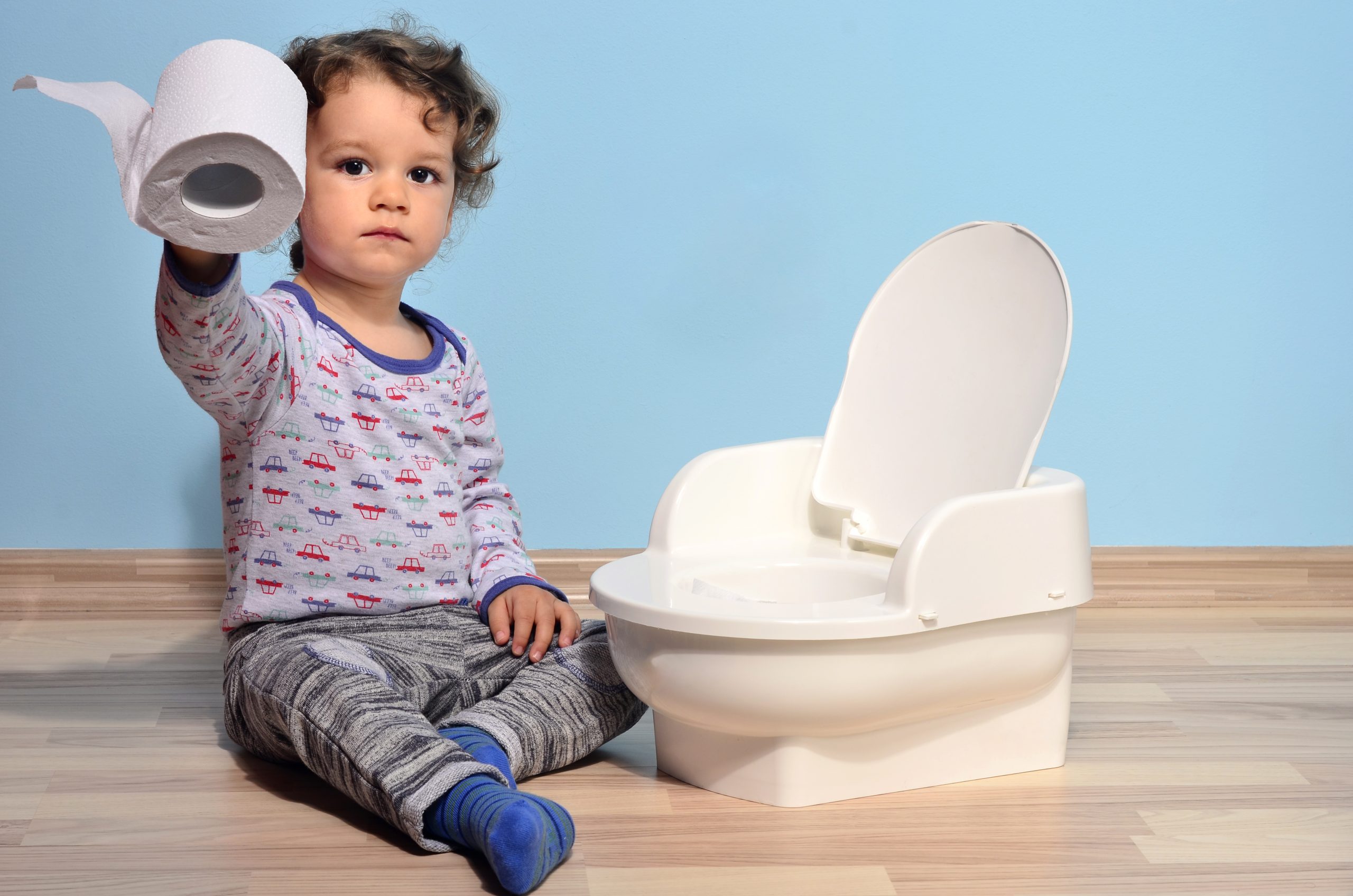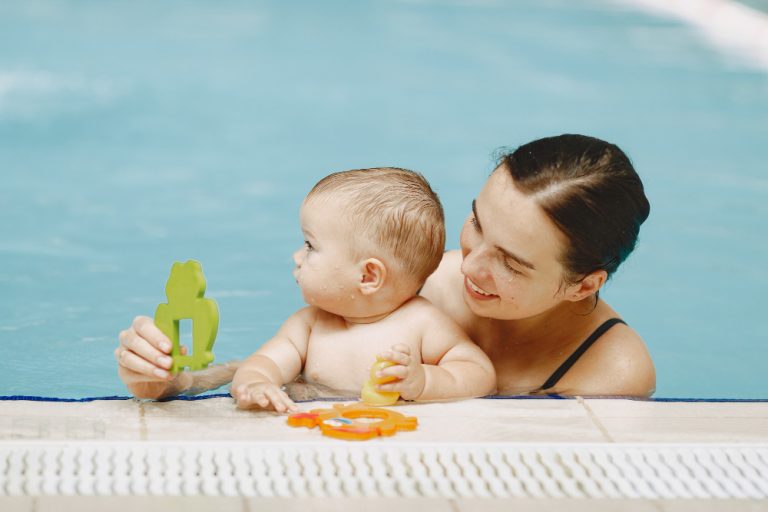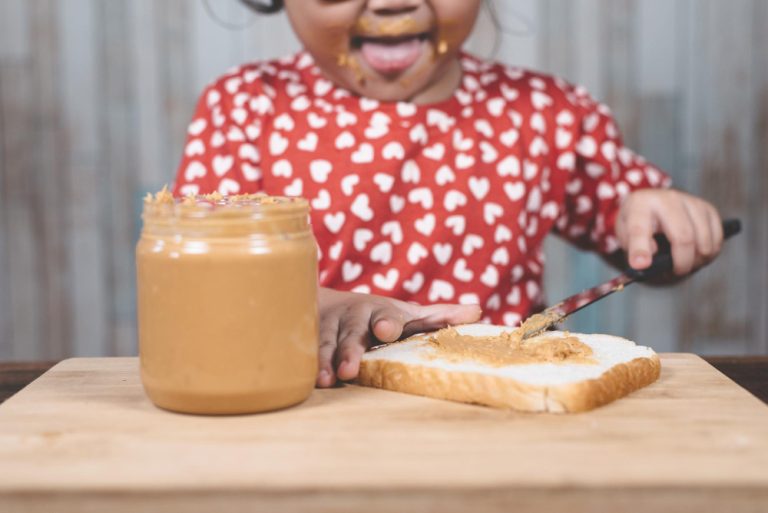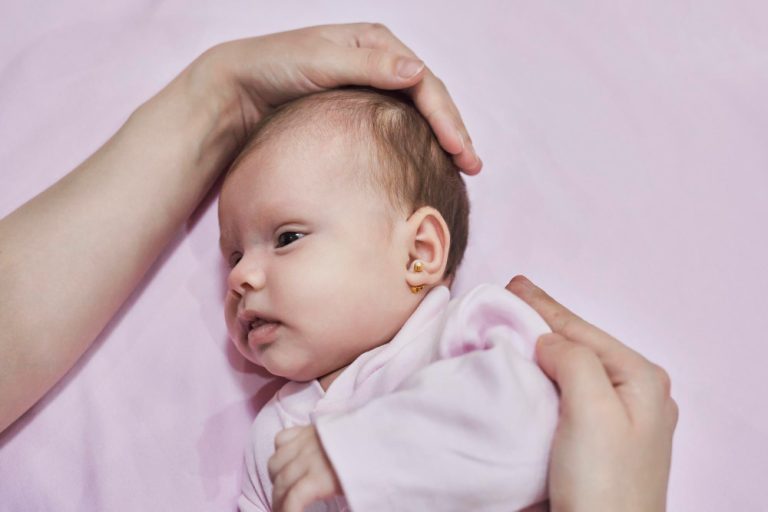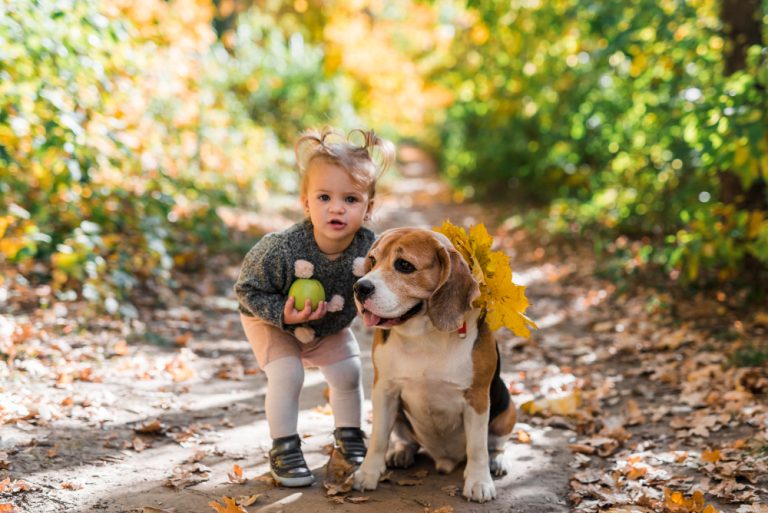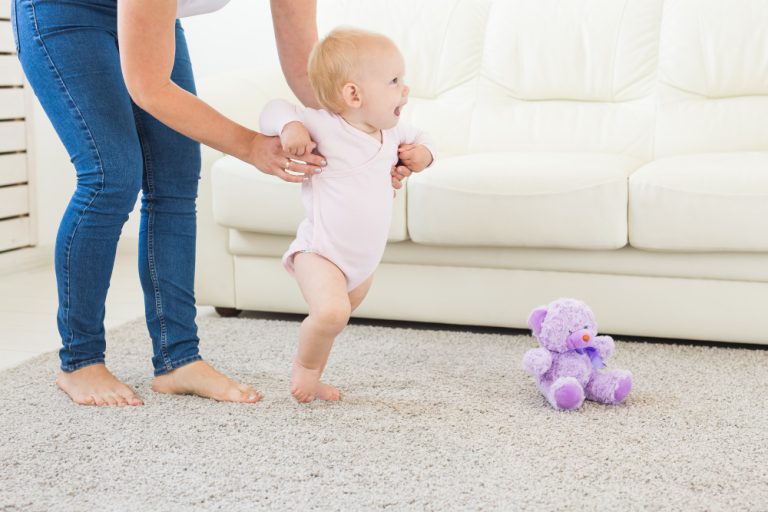When to Start Potty Training: A Comprehensive Guide
Are you a parent who’s gearing up for the upcoming potty training journey with your toddler? Congratulations, it’s a significant milestone in your little one’s growth and development! While the question of when to start potty training may seem daunting, don’t worry; I’m here to guide you through it all. From determining the ideal time to start, to effective strategies for success, and answers to all your questions, this comprehensive guide will help make this experience a positive and rewarding one for both you and your child. So, let’s dive in and get your toddler ready to say goodbye to those diapers and understand when to start potty training!
Signs Your Child May Be Ready for Potty Training
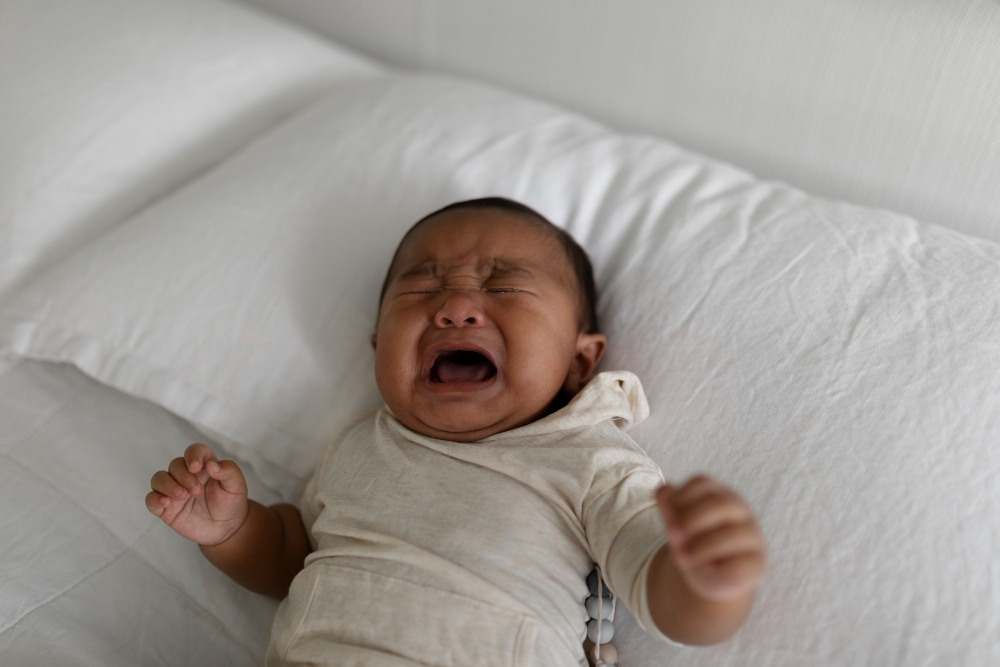
Children show they’re ready for potty training in various ways, and it’s crucial to watch for these signs of readiness:
- Interest in the Potty Chair or Toilet
Your child may express curiosity about the bathroom habits of others, which can indicate readiness to learn.
- Discomfort with Dirty Diapers
Showing discomfort or wanting to change out of a dirty diaper can be a sign your child is ready.
- Predictable Bowel Movements
If your child’s bowel movements become regular, it may be easier to introduce potty training.
- Ability to Follow Simple Instructions
Being able to understand and follow basic directions is essential for potty training.
- Desire for Independence
Wanting to do things “all by myself” is a strong indication your child may be ready to start.
- Staying Dry for Longer Periods
If your child can stay dry for two hours or more, they may have the bladder control necessary for potty training.
Average Age to Start Potty Training
According to the American Academy of Pediatrics, there are certain signs that indicate a child may be ready for potty training, and these signs typically start to manifest between the ages of 18 and 24 months.
However, it’s important to remember that each child develops at their own pace, and some children may show signs of readiness earlier or later than this age range. Therefore, it’s crucial to observe your child’s behavior and wait for them to show signs of readiness before beginning the potty training process.
Is Potty Training at 6 Months Possible?
Many parents may consider introducing their babies to the concept of using the toilet at 6 months of age, but it is generally believed to be premature to start potty training at this stage. Instead, a formal potty training process typically begins at a later age, taking into account the child’s physical and emotional readiness.
It is essential to ensure that your child is prepared for this significant milestone by observing their developmental cues and providing them with the necessary support and encouragement. Remember that every child is different, and when to start potty training journey may vary from one child to another, so be patient and understanding throughout the process.
Preparing for Potty Training

Before you begin, preparation is key:
- Choose the Right Equipment
A child-sized potty chair or a seat reducer for your regular toilet can make training more accessible and less intimidating.
- Set a Routine
Consistency helps children learn. Introduce sitting on the potty at regular times, such as after meals or before bed.
- Dress for Success
Outfits that are easy to take off quickly can help reduce accidents and increase independence.
- Stay Positive
Encouragement and praise can boost your child’s confidence and willingness to use the potty.
Training Pants or Diapers?
When you decide to make the transition from diapers to training pants for your child, it can serve as a significant milestone in their development.
The use of training pants can help your child understand the concept of wetness and become more aware of their body’s signals to use the potty. This is because training pants are designed to be less absorbent than diapers, which means that your child will feel dampness more quickly and learn to recognize the need to use the potty.
However, it’s crucial to make this switch only when your child is ready for it and not before, as forcing the transition can be counterproductive and lead to frustration for both you and your child.
When to Start Potty Training Your Baby
The decision to begin toilet training for your child can be a tricky one. It is important to keep in mind that there is no one-size-fits-all approach. The best time to initiate toilet training is when your child displays certain signs of readiness, such as showing interest in the bathroom or the potty, being able to follow simple instructions, and having some degree of bladder or bowel control.
However, it’s essential to note that these signs of readiness may differ from one child to another. Therefore, it is essential to be observant and patient, taking your child’s unique personality and development into account.
It’s crucial to avoid starting too early, as this can cause frustration and setbacks for both you and your child. Conversely, waiting too long can also pose challenges, as it can hinder your child’s progress and make the process more complicated than it needs to be.
By being attentive to your child’s cues, providing ample support and encouragement, and keeping a positive attitude, you can help make the transition to poty training a more relaxed and rewarding experience for both you and your child.
Tips for Potty Training Success
- Stay Calm and Patient
Accidents will happen. It’s important to remain supportive and not show frustration.
- Use Books and Resources
Children’s books about potty training can help make the process more relatable. “Potty” by Leslie Patricelli and “The Potty Train” by David Hochman and Ruth Kennison are excellent choices.
- Celebrate Achievements
Small rewards or words of praise for successful attempts can motivate your child.
What if my child doesn’t show any signs of readiness for potty training?
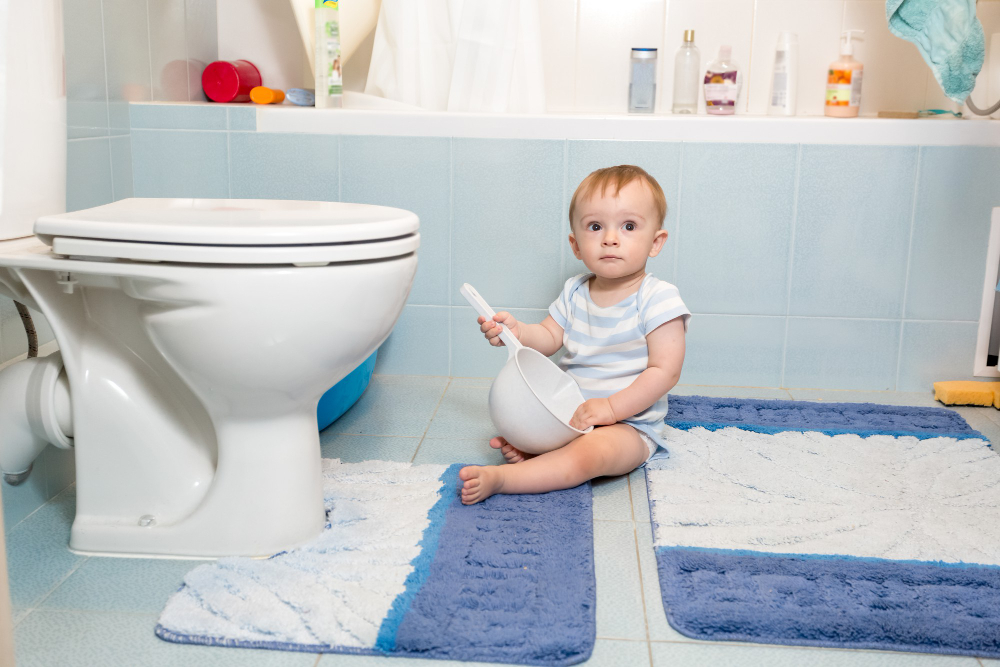
Don’t fret! Not showing signs of readiness is totally normal and doesn’t mean your child will lag behind. Here’s what to remember:
- Relax and Trust the Pace
Every child develops at their own speed. Pushing before they’re ready can lead to frustration and setbacks. Trust their unique timeline.
- Focus on Playful Exploration
Introduce the potty casually, letting them sit when they want (clothed) and read potty books together. Make it fun, not forced.
- Observe and Wait
Look for subtle signs like curiosity about the toilet or discomfort in wet diapers. These can indicate emerging readiness.
- Don’t Compare
Resist comparing your child’s progress to others. Each journey is unique!
- Talk to Your Pediatrician
If you have concerns or questions, reach out to your child’s doctor for personalized guidance.
Remember, patience and support are critical. Your child will get there when they’re ready, and you’ll be there to cheer them on!
Are there any specific strategies for nighttime potty training?
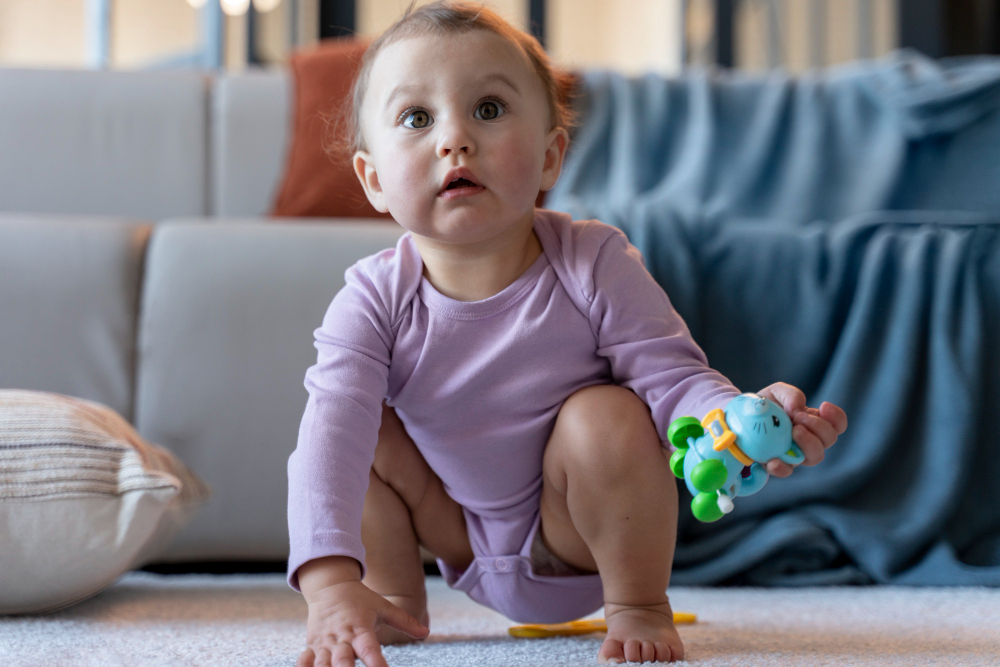
Conquered daytime puddles? Time to tackle nighttime training! While it might seem like venturing into unknown territory, a few strategic steps can pave the path to dry sheets and peaceful nights.
- Patience is Key
Remember, nighttime dryness is primarily a physical milestone, not a behavioral one. Most children achieve consistent nighttime control between 4 and 6 years old. Pushing before they’re ready can lead to frustration and setbacks.
- Prep the Battlefield
Before bedtime, encourage your little one to use the potty and limit drinks an hour beforehand. Invest in waterproof mattress pads and spare sheets for quick accident cleanups.
- Nighttime Patrol
Consider a “dream pee.” Briefly wake your child to use the potty before you go to bed, especially if they have a large bedtime drink. As they mature, gradually phase this out.
- Adopt the Power of Routine
Make pottying a natural part of the bedtime ritual, just like brushing teeth. Encourage your child to try the potty right before bed and upon waking up.
- Celebrate Success
Accidents happen! Focus on positive reinforcement. Praise attempts and successes, no matter how small. A sticker chart or reward system can add a fun element.
- Listen to Your Child
Encourage them to communicate their needs. If they wake up feeling wet, help them get to the potty and offer praise for letting you know.
Remember, every child is unique. What works for one might not work for another. Be patient, flexible, and consistent, and you’ll both soon be celebrating dry nights! Nightlights can make nighttime bathroom trips less daunting. Consider leaving a dim light on in the hallway or bathroom.
Potty training is a journey that differs for every child. By waiting for signs of readiness, preparing adequately, and approaching the process with patience and positivity, you can help your child achieve this important milestone of when to start potty training with confidence. Remember, the goal is to make potty training a positive experience, building your child’s independence and self-esteem.
FAQ Section
Potty training is one of the most important milestones in a child’s growth and development, and it’s crucial to start the process when your child is ready. It’s important to remember that every child is unique and that comparing your child’s progress to others is not helpful. To ensure success, you need to prepare well, be consistent, and be patient. Remember to stay positive, celebrate your child’s achievements, and seek personalized guidance from your pediatrician if needed.
With the right approach and mindset, potty training can be an incredibly positive and rewarding experience for both you and your child. Don’t miss out on this opportunity to help your child achieve this significant milestone! We invite you to share your thoughts and questions below. Your experiences and strategies on when to start potty training can provide valuable insights for other parents venturing on this journey.

